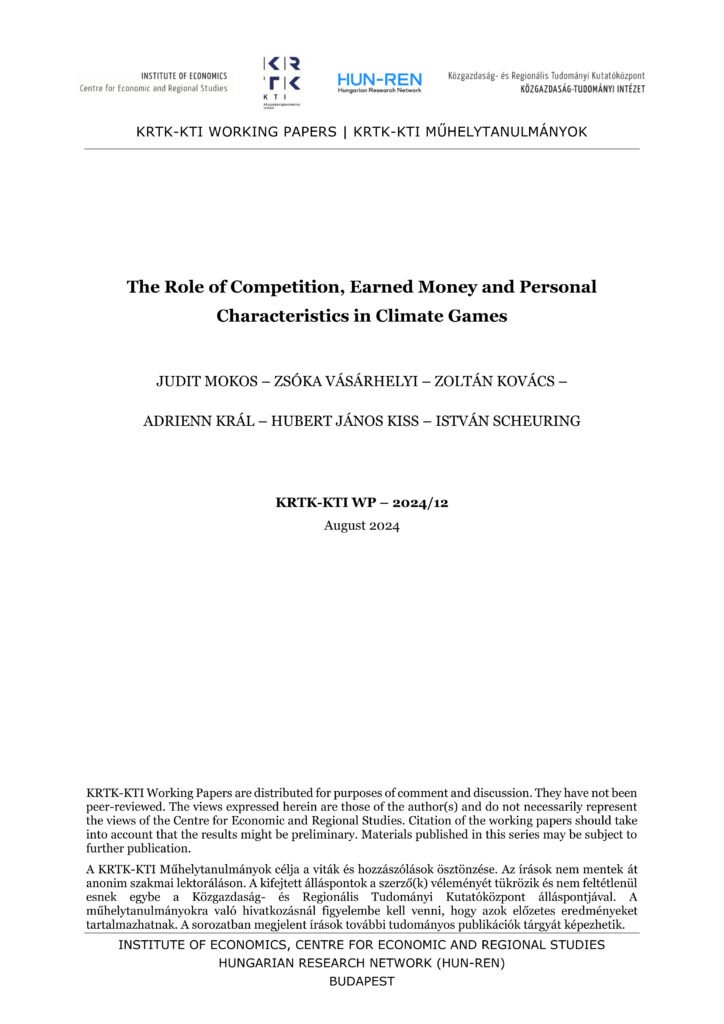Using different variants of the classic climate game, we investigate the role of competition and the source of endowment (windfall vs. earned). Participants completed a detailed personality test (including climate attitudes and economic preferences) before the experiment and were asked about their strategies afterwards. We find that competition did not significantly affect whether groups reached the target, even though the probability of achieving the common goal was lower in the presence of competition. Participants cooperated more when they had to earn the endowment. Based on the pre-experiment questionnaire, participants who viewed their personal actions as more important and effective in combating climate change were more likely to cooperate in the climate game, while the rest of the measured personality items did not exhibit a consistent pattern. Analysis of the post-experiment survey indicates that those who aimed to maximise earnings contributed less to the common pool. In contrast, those who believed the goal was achievable and aimed to achieve it contributed more to the common pool throughout the game.
Publikációk / The Role of Competition, Earned Money and Personal Characteristics in Climate Games
The Role of Competition, Earned Money and Personal Characteristics in Climate Games
- 2024.08.14
- | 11:40

2025
Aug
31
M
T
W
T
F
S
S
28
29
30
31
1
2
3
4
5
6
7
8
9
10
11
12
13
14
15
16
17
18
19
20
21
22
23
24
25
26
27
28
29
30
31
1
2
3
4
5
6
7
Next month >
a
2025
Aug
31
M
T
W
T
F
S
S
28
29
30
31
1
2
3
4
5
6
7
8
9
10
11
12
13
14
15
16
17
18
19
20
21
22
23
24
25
26
27
28
29
30
31
1
2
3
4
5
6
7
Next month >

